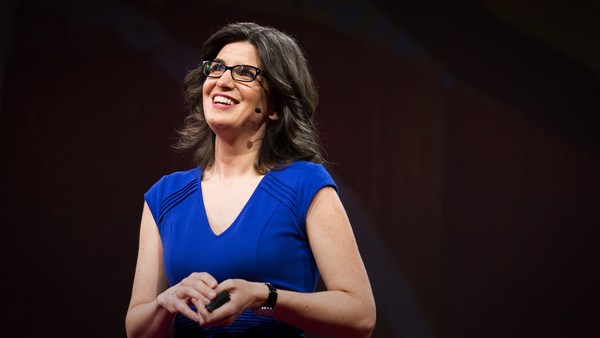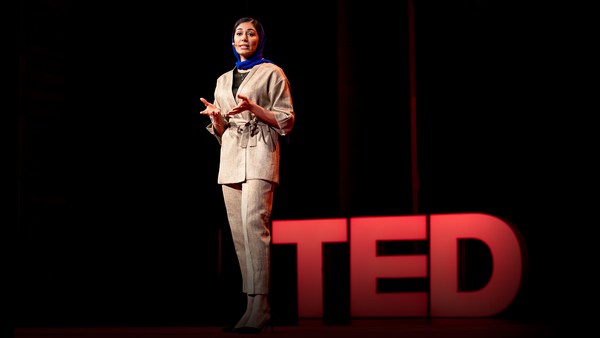Parenting and technology. Parents are full of questions about the digital future. What’s good or bad technology? What will help or hinder their child? These are not easy questions to answer, and our society is struggling with them.
I’ve always been fascinated by how families embrace new technologies, perhaps because I was brought up by a mother who wouldn’t have any technology in the house at all. When I became a social psychologist in the 1980s, I began asking families about what was new. Then, it was “where to put the home computer?” “Should children have a television in the bedroom?” Parents were worried about violence and advertising. And they weren’t sure what the benefits were going to be, but broadly they were optimistic.
Fast-forward 30 years, and the world has changed. Digital is everywhere, and now parents’ hopes and fears about digital technologies are almost overwhelming. They are eager to discuss everything from screen time to gaming, from pornography to coding. But why are we so fascinated by the digital? Lots of other things have changed in recent decades, which have added to our anxieties: uncertain work, changing forms of family, increasing inequalities, intensifying educational pressures on our children. But when we look back at our childhood, and then at our children’s, it’s the digital that symbolizes the change between then and now. All those devices in our homes: we love to talk about them, but we feel we should be able to control them.
Here’s Lara and Pavel. They’re from different countries and cultures, and they’re making their life together in London. They’re arguing about what digital technologies their six-year-old son, Thomas, should use. Lara, originally from Brazil, is excited. Pavel, from Poland, he’s worried. But more fundamentally, they’re arguing about how their lives should be in London and who their son Thomas should be. Should he be open to change, or should he be cautious in the face of risk?
I want to argue that the digital has become the terrain on which we are negotiating who we are: our identities, our relationships, our values and our children’s life chances. No wonder our anxieties and arguments about technology are often so fraught. Society has high hopes and considerable fears for digital technologies. And that adds to our anxieties, because what parents want are practical steps that they can take to shape their children’s digital lives positively.
So how can we better parent for a digital future? Well, I’d like to suggest as a starting point that we recognize and not underestimate the efforts that parents are already making, and then think about how society can support them better. Let me tell you a little about my recent research. With my co-author, Alicia Blum-Ross, I’ve been interviewing families in London from many walks of life. I’ve interviewed them at home when I could, or in a café, or while they’re waiting for their child to come out of coding club. And I’ve asked them to reflect on their parenting -- to think back to how they were brought up, and to look forward to their child’s future. Parents told us lots of different stories. Some of them were finding life hard, and we had some tears. A fair few wanted to talk about the risks -- and those are important and they deserve attention, which they get elsewhere, including from me. But some -- and this may seem more surprising -- some were calm and confident about their children’s digital lives. And today, I want to tell you what I learned from them.
The first thing I learned from the families who were calm and confident about their children’s digital lives is that they were clear about their values. And they found ways to live close to their values and to include the digital technologies in those so that the digital is not something weird or contradictory for their way of life. So Daisy and Jacob live on a low income and they have an art background, but they value creativity. Their small flat is full of papier-mâché projects and crafting and photography materials. And Daisy curates computer games that express her alternative aesthetic, including those which resemble the art of Escher.
Leila is a single parent, and she’s also on a low income, and with health worries. Like many migrants, Leila values education. And her family has helped her buy a computer so that her daughters can do their homework on it and that she can help them in their digital aspirations.
Ryan and Amy are committed to helping their son in any way that they can. Kyle has moderate to severe autism, and at 13, he’s become passionate about digital design. His parents now use their media expertise from their profession to support his interests in any way that they can.
Dani values the digital for itself. She’s excited about a digital future. She thinks that geeks will inherit the earth, and she’s enrolled 12-year-old Josh in a course for computer programming, saying that coding Java is the new Latin.
The second thing I learned from the families who are calm and confident about their children’s digital lives is that they share the decision-making within the family. They negotiate; they don’t impose. They listen to their children's views and they even share some digital pleasures together. So Dani loves it when Josh invites his friends around and they all play “Minecraft” together, and she sets them coding challenges and then enjoys watching their collaborative problem-solving. Ryan and Amy take their lead from their son. They go out and take digital photos together that he can use in his design projects, and they see a special affinity between his educational needs and the digital world. Jacob and Daisy understand that their children will play computer games -- standard, commercial computer games with their friends. But they’re glad that they’ve added some alternative games into the mix, and feel that way they are sharing their values. And Leila, well, she doesn’t understand much about the computer, but she loves that 10-year-old Nareen can fix it for her when she needs it. And she uses it so that the family together can listen to music from Ethiopia and she can share her home culture with her daughters.
I’m not saying that a digital future is the only or the best way forward for these children. I’m saying that their parents have good reasons for supposing that it might be. And I’m also not saying that sharing their values and listening to their children and their interest in technology is going to solve all of family’s problems -- of course it won’t. But I think it can help, because it means that families don’t have to fight against the inevitable, because the digital is not going away. And it means that parents don’t have to try to do the same as everybody else, but they can play to their strengths.
But it’s hard for them. The digital future raises many uncertainties. Should we all be building robots with our children? The digital future -- it raises hopes and doesn’t explain the steps we need to take towards them. It promises outcomes that might not materialize, and it intensifies the risks and opportunities that we all face. So how can we help parents better?
Well ... we could stop scaremongering. We could stop telling parents to police their children. Parents are trying to live democratically with their children. They don’t want to police them, spy on them or ban their pleasures. How does it help the families facing difficulties to demand that they control screen time, on top of everything else? Why undermine the efforts of parents who are trying to do something creative or educational with technologies -- to treat all screen time as if it’s the same? Official screen time advice is causing conflict in the home. And there’s no solid evidence that more screen time causes more childhood problems, especially by comparison with social, economic and psychological challenges that families are facing. Indeed, restricting children breeds resistance while guiding them builds judgment. So we should be helping parents to develop that judgment, to evaluate what's on the screen, to think about how their children are interacting with the screen and to think about what they’re getting from it. We can also require our schools to embed digital literacy in the curriculum, and to reach out to make connections with families’ digital lives at home, outside the classroom. Librarians, youth workers, health visitors -- they could all be supporting parents to make more educational and creative and imaginative choices about the digital world. And government could play its part in addressing the risks and ensuring an abundance of positive content for families to engage with. Of course, the digital is not everything, and we also want more public parks and clubs and places for children to go and meet their friends face-to-face, and for families to be able to go out in a way that’s affordable for them.
Society is investing a lot in a digital future. But it’s still parents who are the main influence on their children's life chances, and there’s no quick fix for the challenges that they are facing. When it comes to technologies I’ve suggested that for parents, it will help if they can be clear about their values, listen to their children and share some digital pleasures with them. For society, I know it's easy to criticize parents, but I’ve argued instead that we should recognize the challenges they’re facing, that we should try to enhance the opportunities and options available to them and that we should ask ourselves how we can support them better.
Thank you.
(Applause)


